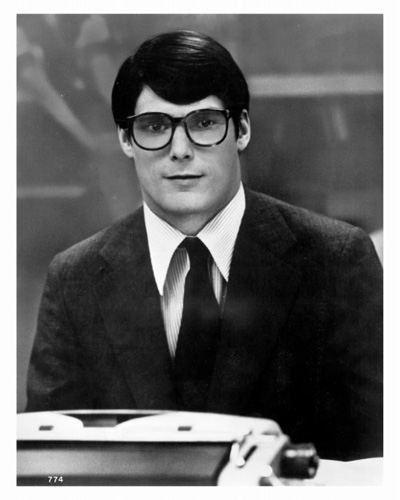You may blame the economy, but as any sad sap who’s ever heard the words, “It’s not you, it’s me” knows, it’s definitely you. Fortunately, it doesn’t have to always be you. I’ve compiled a list of 5 simple and common reasons candidates may get overlooked for their dream job.
#5. Too revealing answers to cheesy interview questions
Interviewers love to ask the dumbest questions. What’s your strongest weakness? What’s your weakest strength? Something like that. You’ll almost always get a question purely designed to make you uneasy and to put you on the spot. For example: “What’s the greatest risk you’ve ever taken and failed?” They’re setting you up for failure, to see if you take the bait. Of course, not taking the bait is a sign of weakness too. So, you either say you’re inadequate to some degree or you’ll be seen as inadequately answering the question. Neither works in your favor. Yes, it’s a trap.
So, what to do? Avoid answering the question with anything that would relate to your ability to do the job. You have to answer, and when the interviewer is fishing for your weaknesses, don’t admit, “I spend most of my time tweeting about tiger blood.” That tells them you won’t be focused on the job, and may hint at a drug addiction.
When you’re thrown these kinds of questions, keep it simple and for Heaven’s sake don’t say something that relates to the position you’re applying for! If you want to be a copyeditor and your greatest weakness is the English language, then it doesn’t matter how honest you may be. You simply aren’t going to get the job done. It’s also a mistake to go with a classic “I’m a perfectionist”. Really? I think you’re just a dishonest fool with no creativity. There’s nothing perfect about that.
Ultimately, you have to be original, be honest and go with a weakness far removed from the abilities needed to perform the job. “My greatest weakness is that I can’t do math quickly in my head.” If you’re applying for a copywriting position, then there’s nothing wrong with that. Hell, that’s what calculators are for. On the flip side, if you’re applying to be a web developer, then maybe your greatest weakness is understanding poetry.
Whatever your greatest weakness, ALWAYS follow up with, “It’s something that frustrates me. I want to improve and am always working at it.”
#4. Job hopping
It’s like a man who’s been divorced multiple times. “There has to be a reason for it.” It doesn’t matter if it’s true or not, that will be the perception. It can be particularly difficult early in your career to not job hop. Several positions are only meant to be temporary, and perhaps your life situation as well as goals have changed considerably during a short amount of time. That’s all okay, but be ready to explain it.
With internships, there’s always the question of, “Why didn’t they offer you a full time gig after it ended?” So, you should make it clear that it was only a summer thing or that you only wanted the specific experience before moving on to a more stable career (which you’re now applying for). You’ll want to make sure to convey that you’re looking for something real, steady and longterm.
Of course, that’s for spinning job hopping in the interview. First, you want to get to the interview, so consider working an explanation into your cover letter. That’s your chance to tell them you’ve been exploring different options, learning a variety of skills, and now you’re ready to find your career.
#3. Your resume doesn’t say anything
So, you were an intern at some publisher? Great, but what does that mean you can do for us? Since interns rarely get money, let alone a job title, it can be a challenge describing these early steps of a career on your resume. A good start would be to say what kind of intern you are. Yes, they are all pretty much the same thing: under-appreciated gofers. When an employer looks at your past job titles and descriptions, what they’re looking for are words that convey relative experience. So, even if your primary task was coffee retrieval, you technically were a marketing intern. So, say that. Be as specific to the job you’re applying for as you can be without stretching the truth so much. Focus on the aspects of the position you had that matter to the one you want.
Secondly, describe the job in the same manner. Chances are we aren’t interested in you for your ability to paper clip 100 sets of presentation handouts. And while we’re on that subject, leave out arbitrary numbers. Saying you generated “over 9000 leads” for your previous employer doesn’t necessarily mean anything to us. Are those a lot of leads? Were they any good? The point is you generated leads. That means you have lead-generation skills. The number is irrelevant. All it says is “Look at me try to impress you with a number I hope you will think means business.” It’s unnecessary clutter. However, necessary clutter would be adding things like “Assisted in the planning of new media marketing strategies” in place of “Attended market strategy meetings.” While you shouldn’t lie, it is important to make sure your description gives a meaning that is relevant and tells the prospective employer that you were more than a wide-eyed seat-filler.
#2. Your resume includes 2 months at Papa John’s
If you’re applying to work in the food industry, then it’s relevant experience. However, if you’re trying to get out of the food industry, it’s not going to help you one bit. An employer doesn’t care about your talents outside of what you can offer them. If they’re not in the business of preparing and boxing pizzas, then it doesn’t matter that you can do 20 in under 30 minutes.
Yes, an employer wants to see some work history. This is why it’s so important to have work history. But if you have little else other than your stint in fast food, then you’re going to have a tough time getting a good desk job. Start somewhere that has computers that are more than Big Mac tabulators, then you can get real world office experience to throw on your resume.
If you’ve got the experience, say at least two jobs and/or over one year, then go ahead and cut Papa John’s from your resume. An employer will only look at it and think, “Why the Hell does he think we care he worked at Papa John’s?”
#1. No practical experience.
This is the biggest killer, and an epidemic now. Kids today, they don’t know what it’s like out in the real world. They spend all their life in college and on the Twitter. Then, when it comes to getting a job, they find they have no marketable skills!
When an employer is hiring for a non-internship position, they want someone who can do it. They’re not looking to train someone from scratch. Unfortunately, when college graduates begin entering the full time job marketplace, they don’t usually have much more than a piece of paper and some mindless internships. When you’re a mindless intern, it’s not just your job to refill staplers, but you also should be absorbing information and learning the inner-workings of the industry. While you may be deprived opportunities to get real hands-on experience, you can stay observant and get an understanding for how your company does whatever it is it does.
Consider your past jobs and think specifically about what you did there that had real, meaningful impact. Then, put that on your resume.
Common sense goes a long way in an interview, but if you’ve never done your own laundry, cooked your own food, paid bills, changed a tire, taken apart a ballpoint pen….SOMETHING, then you could easily find yourself lacking in this department. When the only thing you’re good at is turning in homework assignments online at 11:59 pm, then perhaps you should consider why you went to college in the first place.
The key to getting hired is being valuable. To be valuable, you have to have something to offer. Generally this is a skill of some sort. Find a skill, something relevant to the career you want, and hone it. If you can’t get work experience, then find a way to do it on your own. Public relations? Boast an impressive Twitter following. Web development? Make a website. Photography? Have an engaging Flickr portfolio. If you can show that while you may not have had a lot of opportunity professionally, you have still succeeded at developing a skillset of some kind, then you’re one huge step closer to getting hired.




